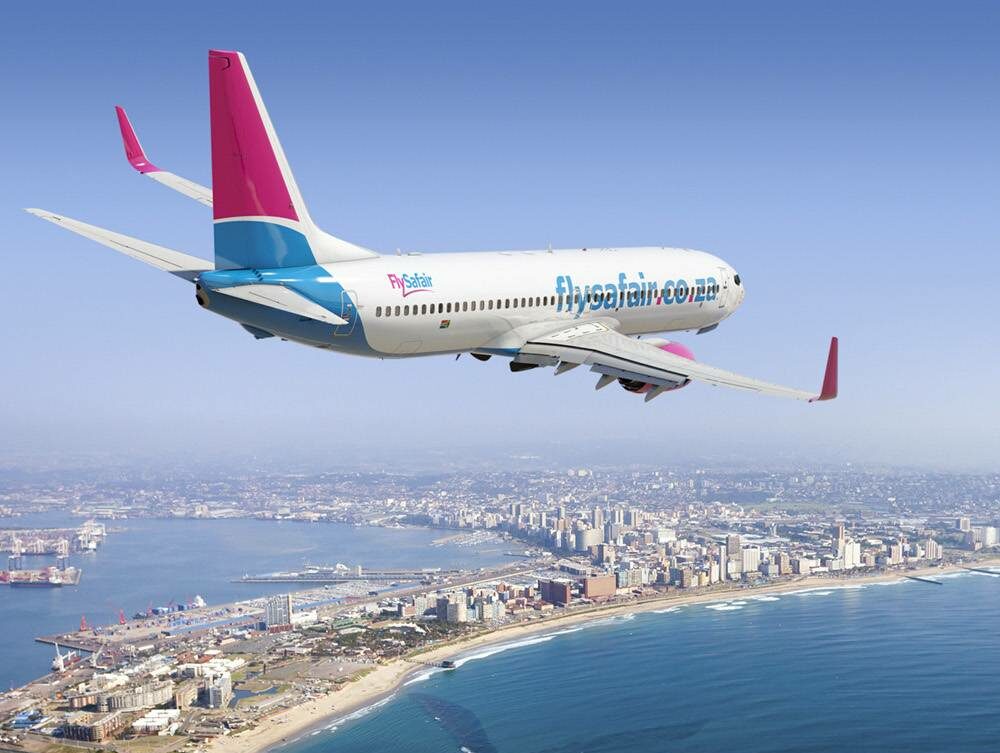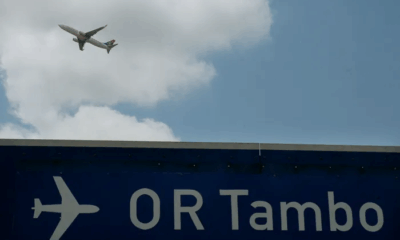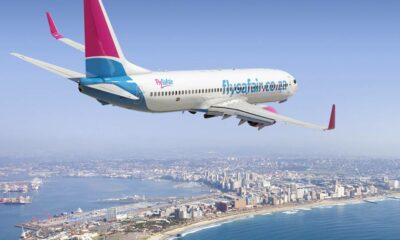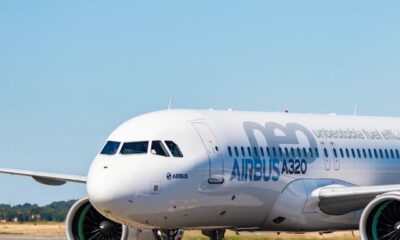Business
FlySafair B-BBEE Deal Sparks Debate Over State Control of SA Skies

FlySafair B-BBEE Deal Sparks Debate Over State Control of SA Skies
Concerns mount that a Harith Partners acquisition could give government-linked investors majority influence in South Africa’s domestic aviation market.
South Africa’s aviation industry is once again in turbulence and this time, it’s not about grounded planes or fuel prices, but who really controls the skies. Reports suggest that Harith Partners, the investment company once tied to the failed Takatso Consortium bid for SAA, is now courting FlySafair in a B-BBEE equity deal valued at an estimated R5–R7 billion.
If successful, the move could see state-linked investors effectively holding sway over 70% of South Africa’s local flight market, a development that’s stirred sharp debate about whether this represents empowerment or quiet consolidation.
From SAA to Safair: Harith’s Second Takeoff Attempt
Harith’s renewed interest in aviation follows its aborted attempt to take over South African Airways through the controversial Takatso Consortium. But this time, the stakes are different. FlySafair South Africa’s most profitable and reliable low-cost carrier dominates roughly 60% of the domestic market, with routes that keep everyday travel affordable for locals and businesses alike.
That dominance is exactly what makes the deal so sensitive. If Harith, a company partly funded by the Public Investment Corporation (PIC) and linked to the Government Employees Pension Fund (GEPF), buys in, critics argue it could hand the state indirect control over more than three-quarters of local flight operations when combined with SAA’s existing share.
“A Step Backwards,” Say Analysts
Aviation expert Guy Leitch warns that the proposed deal could drag the sector back into a familiar state-heavy structure.
“If FlySafair equity is sold to Harith, it will effectively deliver almost three-quarters of the domestic aviation sector market share to the state. This reminds one of the SAA and Mango scenario,” Leitch cautioned.
Mango Airlines, a once-popular low-cost subsidiary of SAA, was accused of benefiting from unfair state subsidies, distorting competition and eventually collapsing under mismanagement. For many, that history is too recent to repeat.
Political Interference Fears
Economist Dawie Roodt echoed those concerns, warning that political influence would be inevitable if pension-backed capital enters the airline.
“Any investment involving state pensioners’ money must be transparent,” said UDM leader Bantu Holomisa, calling for full disclosure. “This is money under the care of a state-owned entity governed by the Public Finance Management Act.”
The Department of Transport, however, downplays the alarm. Spokesperson Collen Msibi insists Harith is a private black-owned company, not a state entity, and that the PIC’s 30% shareholding “does not translate into direct state ownership or control.”
But Leitch isn’t convinced. “The PIC has a long history of pursuing government development objectives. When that happens, pensioners’ returns are often the first casualty,” he said.
The Ownership Puzzle
FlySafair itself has faced scrutiny over its foreign ownership structure. Earlier this year, the Domestic and International Air Services Licensing Councils ordered the airline to correct its shareholding by February 2026 after finding that it was effectively controlled by its Irish parent company, ASL Aviation Holdings.
That ruling means FlySafair needs a local empowerment partner and Harith might just be stepping in to fill that gap.
Internally, FlySafair has already taken steps toward transformation through its NdizaSafair Employee Trust, which owns 25.1% of its local operations, a model praised for giving workers a direct stake in the company.
Why Everyone’s Talking About It
Social media users have been quick to react to the reports, with some praising the idea of a stronger black-owned aviation sector, while others fear a “backdoor nationalisation.”
On X (formerly Twitter), one user wrote:
“FlySafair works because it’s efficient and independent. Don’t fix what isn’t broken.”
Another countered:
“Empowerment deals in aviation are overdue but not if it means politicians get to fly the plane.”
The online debate captures South Africa’s ongoing struggle between economic transformation and market independence, two forces that often collide in industries seen as “strategic,” like energy, telecoms, and aviation.
What’s Next for FlySafair?
With the licensing councils demanding compliance and Harith still silent on the alleged talks, the future of FlySafair remains uncertain. If the deal proceeds, it would mark Harith’s fourth attempt at airline ownership and perhaps its most controversial yet.
Meanwhile, passengers are watching closely. For millions of South Africans, FlySafair isn’t just another airline it’s the only affordable, reliable way to get from Joburg to Cape Town or Durban without breaking the bank.
As one frequent flyer put it in a Facebook comment:
“We just want cheap, on-time flights. Whatever deal they’re cooking, I hope it doesn’t mess that up.”
A Delicate Balancing Act
Whether this deal turns out to be a win for empowerment or a blow to competition will depend on transparency and timing. South Africa’s skies are crowded not just with planes, but with politics.
In the words of Leitch, “Everyone wants to own an airline, until they actually do.”
{Source: The Citizen}
Follow Joburg ETC on Facebook, Twitter , TikTok and Instagram
For more News in Johannesburg, visit joburgetc.com

























